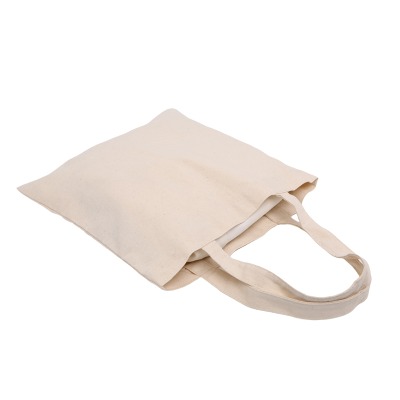Inquiry
Inquiry

Canvas bags are now widely seen in shopping, daily use, and promotional activities. Their popularity comes from durability, reusability, and the ability to carry both simple and stylish designs. For businesses considering custom production, a common question arises: what materials does a Canvas Bag Factory usually work with? The answer varies, as factories can select from different types of fabrics and finishes depending on customer needs.
The foundation of many canvas bags is cotton canvas. This material is sturdy, breathable, and versatile. A Canvas Bag Factory often uses cotton canvas because it is strong enough to hold heavy items while remaining comfortable to carry. It can also be dyed or printed easily, making it suitable for branding or creative designs.
Cotton canvas is usually available in different weights, measured in ounces. Heavier fabrics are used for large shopping or travel bags, while lighter ones fit smaller totes or promotional bags.
In recent years, demand for eco-conscious options has grown. Many factories now work with organic cotton, which is grown without synthetic chemicals, or recycled cotton, made by repurposing textile waste. These materials reduce environmental impact while still providing durability.
Businesses that choose organic or recycled canvas bags can align their packaging with sustainability goals, which is an added value in today's market.
Not all canvas bags are made entirely from cotton. A Canvas Bag Factory may also use polyester or cotton-polyester blends. These blends can offer extra resistance to water, reduce shrinkage, and sometimes make the fabric lighter.
| Material Type | Features | Common Use |
| Pure Cotton Canvas | Durable, breathable, natural look | Shopping totes, daily bags |
| Organic/Recycled Cotton | Eco-conscious, sustainable | Promotional or green initiatives |
| Polyester Blends | Water-resistant, less shrinkage | Outdoor or multipurpose bags |
Blended fabrics also give more options in terms of texture and finish, which can be appealing for businesses that want unique designs.
Besides raw fabric selection, treatments and finishes are another area of customization. A Canvas Bag Factory can apply dyeing, waterproof coatings, or lamination to improve both functionality and style. For instance, waterproof coatings make bags more practical in rainy conditions, while lamination adds a smoother surface suitable for detailed prints.
These treatments don't just improve the bag's appearance but also expand its usage across different industries.
Some factories go beyond the common choices and experiment with specialty fabrics. Waxed canvas, for example, is highly durable and has a distinct look that appeals to lifestyle or fashion brands. Additionally, accessories such as leather handles, metal zippers, or fabric linings are often combined with canvas to enhance both style and usability.
A Canvas Bag Factory does not limit itself to a single material. Instead, it works with a range of fabrics, from traditional cotton canvas to blends and specialty-treated textiles. Whether a business wants an eco-friendly option, a durable everyday bag, or a stylish promotional item, there are plenty of material choices available. This flexibility allows companies to create canvas bags that match both practical needs and branding goals.
Join Us
For 12 years, we have focused on the production and manufacturing of handbags, constantly innovating and researching.
Seed Message
Megalith